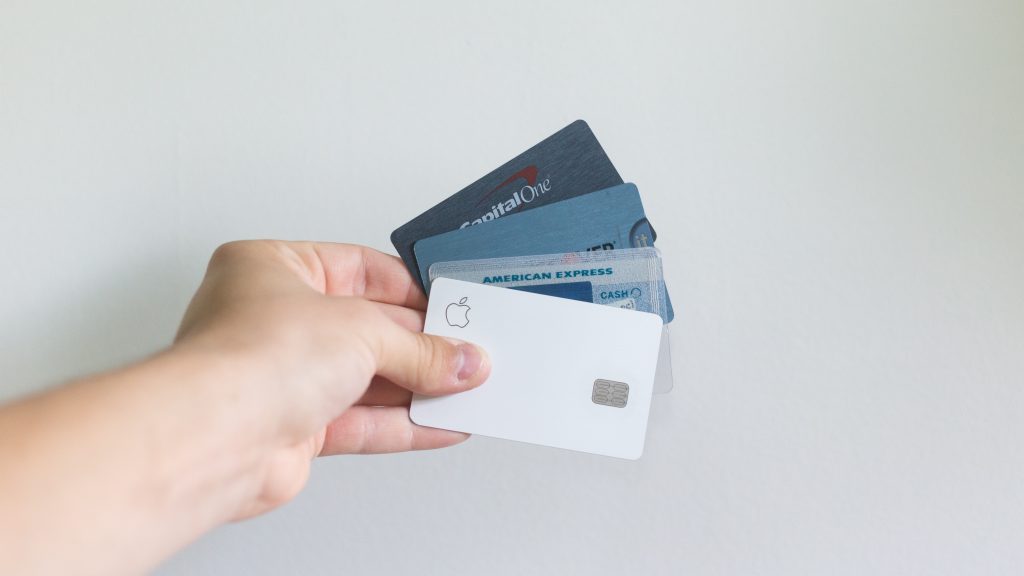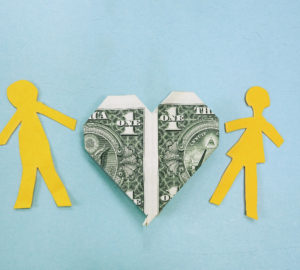(8 minute read)
Being in debt can make you feel any number of feelings, especially if you are in the kind of debt that society doesn’t value. For instance, if you have a student loan, you might feel more comfortable telling a girlfriend about that over a glass of wine vs. telling her that you have $10,000 in credit card debt that you racked up one weekend on a clothing shopping spree. We tend to be more understanding as a society about taking on debt to support a lifestyle we all agree on – house, car, school – and less understanding and accepting of the kind of debt that we view as “optional” – credit cards, personal loans, etc. But regardless of what type of debt and how much you have of it, what we feel about debt can be a powerful driver of our behavior, which is key to whether we stay in debt or get out of it.
We know that emotions can be powerful drivers of our behavior. Often what we think about something drives what we do about something (or don’t do about something). So when you feel emotions such as guilt, shame, or embarrassment, those emotions tend to make us toil in our situation because of the fear that our situation will be exposed if we do anything about it. Even worse, we tend to repeat the behaviors that got us to that emotional space in the first place because we tend to repeat the status quo vs. attempting to change the situation. However, learning how to conquer our emotions about a situation will ultimately allow us to overcome the situation and move forward. So I’m here to tell you, it’s time to let go of the shame of being in debt.
Kick Shame to the Curb
*sigh* Shame. That emotion that we feel when we think we have embarrassed ourselves or someone else at the hands of the invisible social contract we think we signed. That our behavior was at odds with what the world expects of us, and therefore we should feel shame about the choices that lead us there. Well, it’s time to kick shame to the curb. Shame has no place in a debt-free journey. It will not reverse the choices you made in the past, nor will it help you figure out a pathway forward. Also (and probably most importantly), shame exists because of your reaction to society.

So to reframe the emotions you might be feeling about your debt, here are some good questions to ask yourself to help you kick shame to the curb:
- Were you happy when you made the purchases that you did which contributed to being in debt?
- Did you need the things that you bought?
- Did you want the things that you bought?
- Did the things that you purchased bring joy, value, happiness, or satisfaction to your life?
- Did you have to make the purchase(s) out of survival or basic need to get by?
If you answered yes to any of these questions, there is no need to feel shame about being in debt. Often we forget our state of mind when we made the decisions that led us to the current situation that we feel shame about. When in reality, we should remind ourselves about what was happening when we made the decision that ultimately got here in the first place. The journey is just as important as the destination. And even if you wound up in credit card debt because of too many late-night, drunk purchases (can you return any of it? haha), feeling shame about the pathway that brought you into debt will only keep you in debt longer. So it’s time to kick shame to the curb because once you do, you can focus all your emotions on building the pathway out of debt.
Abolish Embarrassment
I think embarrassment might be the most challenging emotion to let go of when it comes to being in debt. Even the dictionary has added “financial embarrassment” as one of the 6 elements of being embarrassed at its definition-level. However, what this signals to me is that so many of us feel embarrassment surrounding money. And sometimes, just recognizing that you are not alone in your situation or feelings can often be enough to abolish the feeling. So take solace in knowing that embarrassment about your financial situation is a common thing to feel.
But to get out of debt and truly build a life of wealth, you will have to overcome the feeling of embarrassment about money and your financial situation. Just like with shame, you can’t control the path that brought you here anymore, only the pathway you build out of here. When I first started climbing my way out of debt, I was incredibly embarrassed about how I wound up in debt in the first place. Sure, I had the socially acceptable debt in the form of a student loan, but what many people didn’t know is that I took out way more than I needed. I spent probably 50% of the total amount I took out on traveling the world, cooking dinner for 20 people every night, wine (oh man, the amount of wine I must have bought over those 2 years 🤦), Starbucks coffee, and living in an apartment conveniently a block from campus but way more than I could realistically afford.

Once I got out of school, I started working a lucrative 6-figure job for a few years but had nothing to show for it. Except for a few thousand dollars I had put into a retirement account, I had no assets, no savings, and barely made a dent in my student loan. And then I lost my job. So I did what I thought anyone would do in my situation – I took out a personal loan and deferred my student loan payments for 6 months. What. A. Mistake. When I finally took stock of my financial life a few years later and decided to get out of debt, I felt so much embarrassment about all these choices I had made over the years. I thought I was silly and reckless. I thought I was stupid and childish. But most of all, I felt dumbfounded because I had no idea how I got here and no idea how to get out. I had an MBA and, up until recently, a good-paying job, and yet I was genuinely lost about what to do about all the debt I found myself in. That is what created the biggest feeling of embarrassment for me.
I want to make sure you hear this loud and clear – IT IS OKAY. Whatever you are feeling about your debt – IT IS OKAY. Recognizing that our emotions are authentic and real is essential to acceptance and action. But it is also important to realize that your feelings don’t have to hold you hostage. Feel the embarrassment, but then let it go. And you’ll find that as you build your way out of debt, the feelings of embarrassment will start to fall away as you replace those feelings with that of pride and fulfillment.
It can be hard to accept where we are at financially, so it stops us from even taking stock of our situation in the first place. But just because you don’t write it all down on paper doesn’t mean that isn’t the reality. The same goes for if you are trying to get into shape; just because you won’t step on the scale doesn’t mean you don’t weigh what you weigh. And I know this idea that “what you don’t know can’t hurt you.” But when it comes to your finances, trust me, if you don’t know your situation, I bet it is hurting you somehow. So I’d like you to adopt a new phrase:
“Knowing my whole financial situation might feel scary. But once I am fully aware of where I am, I can finally take control and decide where I want to be instead.”
It fully embraces and recognizes your feelings, but it helps you get to a place of acceptance. Because once you accept, you can finally act.
Accept and Take Action
I think acceptance can get a bad rap sometimes. People sometimes steer you away from “acceptance” because they often confuse it with complacency. But we all need to practice more acceptance in our lives. I love this definition of “acceptance” by Amy Hillock:
“Practicing acceptance means respecting the process and your current place, and also acknowledging that everything is or can be temporary.” And I think that last part is key – “is or can be temporary.”
Amy Hillock
Recognizing that your money situation is temporary can give you the motivation and drive to create a new situation because knowing something isn’t permanent is a powerful piece of information.

So once you accept where you are at financially, it is time to act! Acceptance without action is only one part of the puzzle. To get started, check out “how to start a budget for beginners.” It will help you kick off this new financial journey you have signed up for. Make sure to read and complete my 12 tiny steps and 3 budget leaps, which will truly place you in the driver’s seat of your financial destiny.
—
If you’ve been waiting for a sign that it’s time to let go of the shame of being in debt, this is it! Don’t wait a minute longer and get started kicking shame to the curb and building your positive relationship with money today.
As always, stay happy and healthy.
Xoxo,
Amy





